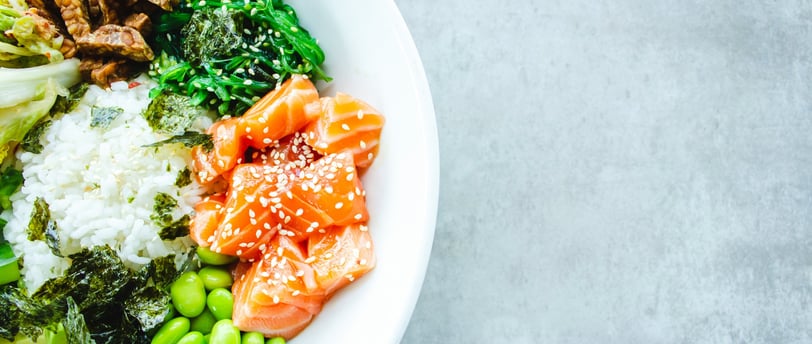

Fueling Your Active Life: The Top 10 Foods for Performance and Recovery
I remember my first marathon. Around mile 20, I hit the infamous wall—legs like concrete, spirit drained. Not because I hadn't trained, but because I hadn't eaten properly. The relationship between nutrition and physical performance isn't just scientific theory; it's something I've learned through sweat, tears, and yes, occasional muscle cramps at inconvenient moments.
Regular exercise demands more than just willpower—it requires a thoughtful nutritional strategy that balances muscle repair, energy replenishment, and calorie control. Whether you're squeezing in pre-dawn workouts before meetings or dedicating weekends to training, your body needs proper fuel. The following foods provide exceptional nutrient density, support recovery, and help minimize unnecessary weight gain, enabling you to perform at your peak even when life gets hectic.
1. Eggs: The Complete Protein Powerhouse
There's a reason eggs are the breakfast of champions—quite literally. When I'm preparing for a challenging day that includes both boardroom presentations and evening training, eggs are my morning foundation.
Eggs represent the gold standard for muscle recovery due to their complete amino acid profile. They're particularly rich in leucine, which acts like a key that unlocks muscle protein synthesis. A single large egg delivers 6-7 grams of high-quality protein, with the yolk providing vital nutrients like choline for brain health, selenium for immune function, and vitamin D for bone strength.
Research from the University of Illinois found that whole eggs post-resistance training enhance muscle protein response more effectively than egg whites alone. The study observed a 40% greater synthesis rate in individuals consuming whole eggs compared to those having just the whites. This makes the case for keeping those golden centers—something I wish I'd known during my "egg white only" phase!
The humble egg's versatility makes it indispensable for busy professionals. Whether scrambled with vegetables for a quick dinner, hard-boiled for an office snack, or incorporated into a weekend frittata, eggs adapt to your schedule rather than the other way around.
2. Greek Yogurt: Dual-Protein Recovery
On days when I have back-to-back meetings and an evening workout planned, Greek yogurt has saved me countless times. It's my "desk drawer emergency fuel" that prevents me from making regrettable vending machine choices.
What makes Greek yogurt special is its unique combination of whey and casein proteins. This dynamic duo offers both rapid and sustained amino acid release—whey provides immediate recovery benefits while casein delivers a slow-drip of amino acids for hours afterward. It's like having both a sprint and marathon runner on your recovery team.
A 1-cup serving typically provides 20-25 grams of protein, along with calcium for bone health—something particularly important if you're spending long hours at a desk. In a compelling 12-week trial, participants consuming Greek yogurt post-exercise gained significantly more biceps thickness and lost more body fat compared to a placebo group.
When paired with berries or oats, Greek yogurt creates a perfect post-workout recovery meal, combining protein with glycogen-restoring carbohydrates. This combination has been shown to reduce post-exercise hunger and subsequent calorie intake—particularly helpful when you're trying to maintain energy without overindulging after intense workouts.
3. Salmon: Anti-Inflammatory Omega-3 Source
I once trained through an inflamed knee because a major presentation was looming. That mistake taught me the critical importance of managing inflammation—a lesson salmon had been trying to teach me all along.
Fatty fish like salmon deliver 22-25 grams of protein per 3.5-ounce serving, but their superpower lies in their omega-3 fatty acids. These beneficial fats reduce exercise-induced inflammation, acting like nature's ibuprofen but without the side effects. A 4-week study found omega-3 supplementation decreased muscle soreness and inflammatory markers like creatine kinase (a sign of muscle damage), equivalent to the benefits you'd get from consuming a 4-ounce salmon serving.
These omega-3s also help mitigate delayed-onset muscle soreness (DOMS)—that particular brand of pain that arrives two days after your workout, just in time for important meetings. They accomplish this by modulating inflammatory pathways in the body, essentially turning down the volume on your body's pain signals.
Even with a packed schedule, preparing salmon doesn't require culinary expertise. A simple sheet pan salmon with vegetables can be ready in under 30 minutes—about the time it takes to scroll through emails after work.
4. Chicken Breast: Lean Protein for Muscle Synthesis
There's a reason chicken breast appears in so many meal prep containers in office refrigerators worldwide. It's the reliable teammate that never lets you down.
Skinless chicken breast offers an impressive 28 grams of protein per 3-ounce serving with minimal fat, making it a staple for lean muscle growth without unnecessary calories. Its high leucine content directly supports muscle protein synthesis, particularly when paired with complex carbohydrates like sweet potatoes or quinoa.
Interestingly, research comparing chicken to plant-based protein blends demonstrated equivalent postprandial muscle protein synthesis rates. This highlights chicken's efficacy in tissue repair while suggesting that well-designed plant alternatives can be similarly effective—good news for those incorporating more plant-based meals into their routine.
After particularly demanding workouts or long days, I've found that having pre-cooked chicken portions ready to go means the difference between proper recovery and grabbing whatever's fastest (and typically least nutritious).
5. Sweet Potatoes: Complex Carbohydrates for Sustained Energy
Sweet potatoes are the unsung heroes of the athletic world—the steady, reliable energy source that won't spike your blood sugar only to leave you crashing during your afternoon meetings.
Rich in vitamin A, fiber, and potassium, sweet potatoes replenish glycogen stores with a low glycemic index, ensuring prolonged energy release. Their approximately 27 grams of carbs per cup aids endurance athletes, while potassium helps counteract exercise-induced electrolyte loss—particularly important if you're fitting in lunchtime workouts and then returning to important afternoon tasks.
Studies highlight sweet potatoes' role in reducing muscle fatigue during prolonged activities. Research shows that high-carbohydrate diets featuring foods like sweet potatoes can restore up to 93% of muscle glycogen within 24 hours post-exercise.
I keep roasted sweet potatoes in my refrigerator for quick reheating—they pair perfectly with almost any protein and can even substitute for less nutritious carbs in most meals. Think of them as your steady energy account that pays reliable dividends throughout the day.
6. Spinach: Electrolyte and Antioxidant-Rich Green
Popeye was onto something, though I prefer my spinach in smoothies rather than canned. This leafy green deserves a place in every active professional's nutrition plan.
Spinach provides magnesium, potassium, and polyphenols, which combat oxidative stress and help prevent muscle cramps—those unwelcome visitors that have a knack for arriving during important presentations or crucial workout moments. A 2021 meta-analysis found that polyphenol-rich greens like spinach reduce muscle damage up to 96 hours post-exercise, improving muscle strength recovery by 7.14%.
Its high vitamin K content also supports bone density, critical for high-impact sports and long-term health, especially as we balance career advancement with physical longevity. For busy professionals, baby spinach requires no preparation and can be added to virtually any meal—sandwiches, smoothies, omelets, or simply tossed with olive oil as a side dish.
I've learned to keep frozen spinach cubes in my freezer for quick smoothie additions on mornings when I'm rushing from workout to work calls. These tiny green powerhouses provide lasting benefits with minimal effort.
7. Bananas: Rapid Glycogen Replenishment
In the middle of a particularly grueling training session years ago, a fellow athlete handed me a banana. "Nature's energy bar," he called it. He wasn't wrong.
Bananas supply approximately 422 mg of potassium per fruit, helping prevent cramps by regulating muscle contractions. Their 27 grams of carbohydrates quickly restore glycogen, making them perfect for the narrow recovery window between workout completion and your next commitment. Additionally, resistant starch in unripe bananas supports gut health—an often overlooked component of overall wellness and recovery.
Research links banana consumption to reduced DOMS and enhanced recovery, with the synergistic effect of potassium and carbohydrates accelerating post-exercise refueling. The fact that they come in their own biodegradable packaging makes them the ultimate grab-and-go recovery food for busy professionals.
I keep bananas at various stages of ripeness—greener ones for slower energy release ahead of endurance activities, and spotty ones for immediate glycogen replenishment after intense training sessions. They're nature's perfect portable fuel.
8. Oats: Fiber and Magnesium for Recovery
There's something deeply comforting about a bowl of oatmeal after an early morning workout—a comfort that's backed by solid nutritional science.
Oats offer 4 grams of protein and 4 grams of fiber per ½ cup, alongside iron and magnesium, nutrients that enhance oxygen delivery to muscles. A study on oat bran supplementation showed a remarkable 20% increase in time to exhaustion during swimming trials, attributed to elevated hepatic and muscle glycogen concentrations.
The beta-glucan fiber in oats slows digestion, stabilizing energy levels and reducing post-exercise fatigue—a critical benefit when you're moving from morning workouts to all-day meetings. I've found overnight oats to be a life-changing make-ahead breakfast that aligns perfectly with early workout schedules.
When I'm traveling for work, portable oatmeal packets come with me. They're like carrying insurance against poor hotel breakfast options and ensure I maintain consistent energy levels despite disrupted routines.
9. Edamame: Plant-Based Protein and Fiber
I discovered edamame during a business trip to Japan, and it's since become my favorite pre-meeting protein source—satisfying but light enough to keep mental clarity at its peak.
Edamame provides 18 grams of protein and 8 grams of fiber per cup, making it a complete plant protein that supports muscle recovery while promoting satiety. Its isoflavones reduce inflammation, while its potassium content rivals bananas in combating exercise-induced cramps.
A 2019 meta-analysis confirmed soy isoflavones' safety and efficacy in supporting muscle repair without endocrine disruption, making edamame ideal for vegan athletes or anyone incorporating more plant-based options into their diet.
Frozen edamame takes minutes to prepare and works well in salads, grain bowls, or simply sprinkled with sea salt as a snack. I keep individual portions in my freezer for quick additions to weekday lunches or post-workout meals when time is scarce but protein needs are high.
10. Tart Cherry Juice: Antioxidant-Driven Recovery
When my knees started complaining after years of running on pavement between meetings in different buildings, tart cherry juice became my secret weapon for recovery.
Its concentrated anthocyanins lower inflammation and DOMS, with multiple studies showing accelerated recovery when consumed pre- and post-exercise. A comprehensive 2021 meta-analysis found it reduces muscle soreness by 30-40% and improves muscular strength recovery by 7.14%—significant numbers for anyone balancing physical performance with professional demands.
The natural sugars in tart cherry juice also aid glycogen replenishment, with supplementation enhancing jump height and sprint performance in subsequent workouts. I've found that incorporating about 8 ounces into my recovery routine makes a noticeable difference in how quickly I bounce back between training sessions.
While not a replacement for proper recovery techniques, tart cherry juice is like having a recovery assistant working behind the scenes while you focus on your next challenge.
Conclusion: Synergistic Nutrition for Peak Performance
These ten foods collectively address the triad of athletic nutrition: protein for repair, carbohydrates for energy, and anti-inflammatory compounds for recovery. By prioritizing nutrient density over calorie load, you can optimize body composition, reduce injury risk, and sustain peak performance—even when balancing extensive professional commitments.
I've learned through years of trial and error that nutritional consistency creates a foundation for both physical performance and professional endurance. The body is remarkably forgiving, but it performs best when given the right tools consistently.
While future research will continue exploring personalized nutrient timing and specific protocols, current evidence underscores the foundational role of these ten foods in any training regimen. Build your meals around these powerhouses, adjust portions to your specific activity level, and watch how your recovery and performance transform—not just in the gym, but in everything you do.
Remember, we're not just training for competitions or aesthetic goals—we're fueling our bodies for the marathon of life, with all its sprints, hurdles, and occasional victory laps.
Sources
https://www.yogurtinnutrition.com/shape-up-with-greek-yogurt-as-a-post-workout-snack/
https://medicalxpress.com/news/2021-02-omega-supplements-muscle-soreness.html
https://assets.cureus.com/uploads/review_article/pdf/334186/20250221-291888-eiv13h.pdf
https://www.tandfonline.com/doi/full/10.1080/10408398.2021.1895054
https://nrl.northumbria.ac.uk/id/eprint/44373/1/Cherry_Manuscript_Repository_Copy.pdf
https://journals.humankinetics.com/view/journals/ijsnem/31/2/article-p154.xml

